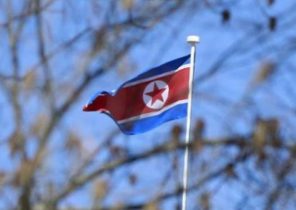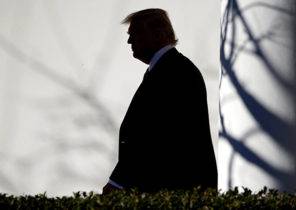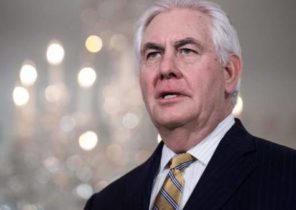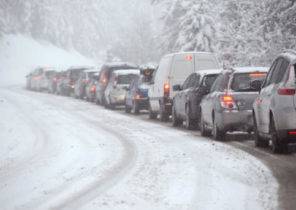Nottingham — In the last month, the United States regularly beat your daily record new confirmed cases covid-19, registering a total of more than four million cases and closer to around 150 thousand deaths. While other developed countries of Europe and Asia, apparently, inhibit the proliferation, the United States went in the opposite direction, and ruthlessly pandemic spread to the southern and Western States: in Arizona was the same cases as in all of the European Union, where the population is 60 times higher.
What went wrong? Part of the answer lies in the fact that some States too soon opened after lockdown. In California, the early success stories in recent weeks have seen an increase in cases at 90 percent, and the state had to re-introduce some measures to lockdown. The daily number of new cases in Florida, about 5 thousand in the last week of June, more than doubled a month later.
But perhaps the biggest culprit was a deep division of opinion in the wearing of masks, which in the US has become another front in the ongoing culture war. A recent poll by the Pew Research Center found that only 49 percent of conservative Republicans said they wore a mask most of the time in the past month; among liberal Democrats, the figure was 83 percent. Across the country carried angry clashes between supporters of the “pros” and “cons” of wearing masks, often around Department stores.
The polarization of America about the wearing of face masks started from the top. With the onset of the crisis covid-19, President Donald trump refuses to wear a mask in public places, ridiculing the reporter, who refused to remove the mask as “politically correct decision”. Many elected officials from the Republicans, including state governors, such as Governor of Florida Ron DeSantis, followed the example of trump. During his now infamous meeting in Tulsa in June, the masks worn are few and rare (infections there subsequently skyrocketed). Only at the end of July — when his approval rating has plummeted in the States, where he must win to be re-elected in November, raging outbreaks of the disease, and reportedly his aides urge “in his public comments focus on serious perception of the virus” trump has endorsed the wearing of masks (not putting it on myself).
On the contrary, Joe Biden, the prospective democratic candidate who will face trump [the election] in November, regularly appears in public wearing a mask and adheres to the principles of social distancing. Moreover, Biden said that if he were in place of trump, he would “do everything possible so that the wearing of masks became for people a social duty”.
Public health authorities also served mixed signals. As the U.S. centers for control and prevention of diseases and the world health organization initially did not recommend the wearing of face masks for the population, fearing the exhaustion of scarce resources for health professionals. But unlike trump, the two organizations subsequently changed their recommendation on the basis of epidemiological data.
At the community level, along with a zealous libertarianism that underlies the views of many Republican voters that the masks are “muzzles” for personal freedom and choice, in the US there is strong religious support for resistance to facial masks. One Florida resident objected to the fact that wearing the mask throws away a “wonderful respiratory system of God the door.” But the Christian fundamentalists, there is a deeper logic in opposing the masks Christians wear crosses and Muslims cover their face.
The connection between Islamophobia and hostility towards the face cover has a long history. Two years ago, Prime Minister Boris Johnson has compared Muslim women in a burqa with a “mailbox”, and in 2011, President Nicolas Sarkozy of France introduced a controversial law banning face closure prohibiting Muslim women from wearing in public of clothing completely covering the face. In France, the government order to wear masks in response to covid-19 seemed to many somewhat ironic, if not even discriminatory. As noted by James McCauley from the Washington post, “if a Muslim woman wanted to get into the Paris metro, she would have had to remove their veil and replace it with the mask.”
If the intention of the law Sarkozy called La République se vit à visage découvert (“the Republic lives with an open face”), was clearly discriminatory, it was veiled more noble justification, ascending to Enlightenment, for the appearance without a mask in the public sphere. Rejecting the courtly politics of the old regime, marked the aristocratic ball-masquerades, philosophers such as Jean-Jacques Rousseau, argued that the governance of the Republic must be absolutely clear: those who participate in the public sphere, should have the opportunity to see and be seen. Only then will there be a truly democratic politics.
Rousseau’s idea was that the citizens of a democratic society will interact with each other in public, what will make them take responsibility for their views. But two recent events have challenged this democratic space.
The first event is a technological innovation such as face recognition that States can and do use to monitor and control its population. That’s why the protesters for democracy in Hong Kong, for example, do not have to wait until the pandemic shut down their faces.
The second mandates the wearing of masks, which many Western countries have imposed in response to covid-19, make it difficult to achieve such transparency, which meant Rousseau. When, in June, protests erupted Black Lives Matter, parties that, being good Democrats typically would demonstrate “open face”, often as law-abiding citizens covered their faces.
This lack of transparency can be fun or frustrating for demonstrators who can’t find friends and companions. But when it happens on the other side, when security forces removed or hide their official insignia, and thus effectively evade prosecution for acts of violence against peaceful demonstrators — a threat to the democratic public space is fundamental. These concerns have since peaked, after trump Federal paramilitary forces to suppress the nightly protests in Portland, Oregon, and his willingness to do the same in other cities.
In the end, the pandemic and protests should remind us of a basic truth: the mask is always a mask. For democracy, it is not, close do people in public their faces, but who are these people and why they do it.







